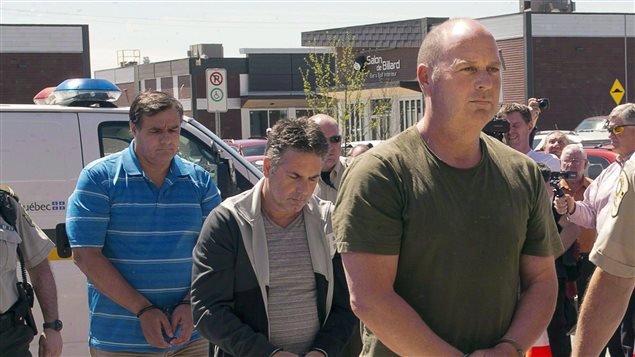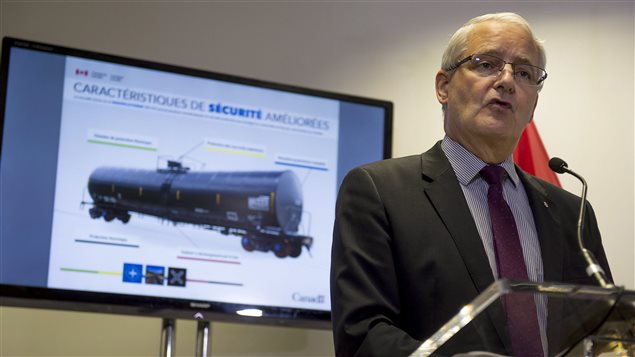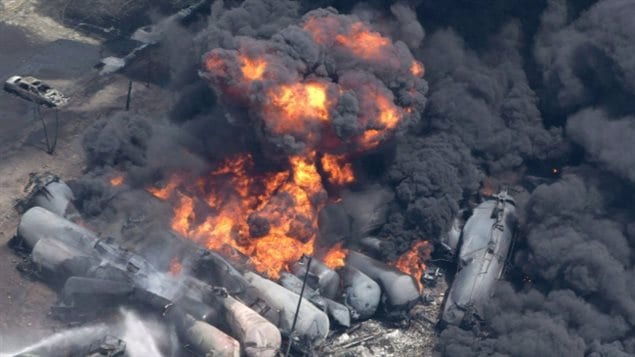Four years after a runaway train derailed and exploded in the Quebec town of Lac-Mégantic, killing 47 people, the criminal trial for the three men charged in one of Canada’s worst railway disasters is set to begin this morning with the selection of a jury.
Engineer and train driver Thomas Harding, train operations manager Jean Demaître and railway traffic controller Richard Labrie from the now defunct Montreal, Maine and Atlantic (MMA) Railway Ltd are each facing 47 charges of criminal negligence causing death in connection with the derailment and explosion on July 6, 2013. All three men have pleaded not guilty.
The trial is being held in Sherbrooke, Quebec, about 130 kilometres east of Montreal, under Quebec Superior Court Judge Gaétan Dumas and is expected to last until Christmas.
Finding bilingual jurors

One of the first challenges facing the trial is finding perfectly bilingual jury members.
The Lac-Mégantic trial will be entirely bilingual, since Harding is anglophone, while Demaître and Labrie are francophone, and selected jurors must be fluent in both English and French.
‘Weak safety culture’ blamed
Officials with Canada’s Transportation Safety Board (TSB) Tuesday have blamed a “weak safety culture” for the derailment in Lac-Mégantic, about 250 kilometres east of Montreal.
Following the disaster, TSB chair Wendy Tadros criticized both the private company that operated the train and the federal government for lack of safety oversight.
The 73-car train loaded with volatile Bakken crude oil from North Dakota had been parked uphill from Lac-Mégantic when the pilot left it without properly setting all handbrakes before leaving the train.
It sped downhill for 12 kilometres without a driver and barrelled into the town of 6,000 inhabitants in the early morning hours of July 6, derailing and exploding near a popular local tavern filled with weekend celebrants.
Rescue workers laboured for days searching for bodies amid the smoking wreckage.
The Montreal, Maine and Atlantic Railway “was a company with a weak safety culture” that lacked a sufficient system to manage risk, TSB said in its report into the disaster.
The board also charged that the government failed to properly audit MMA, which has since declared bankruptcy.
Changes to rail transport rules
The disaster has prompted major changes to rules on transporting crude oil by railways.

The TSB report into the disaster called on Transport Canada, the federal agency responsible for railways, to require railway companies to put in place more “physical defences” to keep rail cars secure and prevent runaway trains.
In addition, transport officials must conduct frequent, in-depth audits of railway safety management systems to make sure they are fully functional and don’t simply exist on paper, the report said.
Locomotives attached to one or more cars carrying dangerous goods can also no longer be left unattended.
After the interim report, Transport Canada agreed to phase out most DOT-111 tanker cars, of the type involved in the disaster, within next five years.
With files from CBC News







For reasons beyond our control, and for an undetermined period of time, our comment section is now closed. However, our social networks remain open to your contributions.